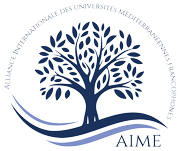AccueilRechercheProgrammes et productions scientifiquesThèsesThèses soutenuesThèses soutenues - 2006-2021Thèses soutenues - 2013
-
Partager cette page
- Recherche,
QUIGNON Emilie
Une approche intégrée pour l’action publique territoriale
Publié le 11 avril 2013 – Mis à jour le 17 avril 2013
Thèse en Sciences de Géographie - Aménagement soutenue le 25 mars 2013
L’action publique territoriale est confrontée à des enjeux de rationalisation liés au projet de réforme territoriale et à la contrainte de réduction du déficit et donc de la dépense publique. Le présent travail de recherche tente de définir un cadre de compréhension et d’intervention pour une action publique territoriale plus performante centrée sur le concept d’intégration. Cette thèse cherche donc à proposer une définition pour l’action publique territoriale intégrée en trois axes qui correspondent chacun à un chapitre. Pour optimiser l’action publique territoriale, celle-ci doit prendre en compte la diversité des enjeux territoriaux (et notamment la compétitivité, l’attractivité et la soutenabilité), les combinaisons complexes d’échelles territoriales embo?tées et enchevêtrées ainsi que la diversité des temporalités des acteurs constituant le territoire. Ce travail s’est appuyé sur l’exemple des politiques publiques en matière de zones d’activités économiques sur les territoires des Ardennes, du Rh?ne et du Vaucluse. La zone d’activités appara?t comme une forme datée d’aménagement économique car elle est monofonctionnelle et la plupart du temps de faible qualité architecturale et urbanistique. Elle ne représente, malgré son co?t pour l’action publique, qu’une part faible des emplois sur un territoire (15-20%). Malgré cela, les politiques publiques de zones d’activités restent relativement présentes dans l’action publique. D’une manière plus générale, les politiques publiques de développement économique apparaissent comme un bon exemple pour explorer le concept d’intégration dans la mesure où elles sont mobilisées par tous les échelons territoriaux et se trouvent au croisement d’enjeux économiques, environnementaux et sociaux. Pour aller plus loin, ce cadre de compréhension et d’intervention mériterait d’être testé en recherche intervention. Son application pourrait être explorée avec d’autres politiques publiques.
The French public territorial action has to be rationalized: At the beginning of the eighties begins decentralization of power toward the local authorities. It keeps on today and is completed by a wish of simplification. Besides, French public action faces today to more and more restricted financial capacities. Rationalization of French public intervention is so, more than ever, at stake. The present work aims at defining a frame of comprehension and intervention for a more efficient public action based on the concept of “integration”. This thesis offers a definition of “integration” organized around three axes: the French Public Action has first to take in account diversity of stakes (competitiveness, attractiveness, sustainability), then the combination of territorial scales (fitted and muddled), and diversity of perception of time by the different actors who constitute the territory. This work leans on the example of “trading estate” in three French localities Ardennes, Rh?ne and Vaucluse. “Trading Estate” seems to be a “has been” form of economic town planning because of the lack of mixity and their low architectural quality. “Trading estates” represent a weak part of jobs on a territory (15-20%), however it stays a relatively often mobilized public policy. More generally speaking, public policies concerning economic development constitute a relevant field to explore the concept of “Integration” because all scales of local and regional authorities intervene in matter of economic development. Besides, it contains at the same time economic, social and environmental stakes. To go further, the frame of comprehension and intervention which is here proposed should be applied and experimented in real conditions and maybe in other fields of public policies.
Mots-clés : politiques publiques, collectivités territoriales, zones d’activités économiques, compétitivité, attractivité, soutenabilité
Key words : public policies, local administration, trading estate, competitiveness, attractiveness, sustainability.
Directeur de thèse : Jacques BONNET
Membres du jury :
Anna GEPPERT, Professeur, Université Paris IV Sorbonne
Philippe SUBRA, Professeur, Université Paris VIII
Lise BOURDEAU-LEPAGE, Professeur, Université Jean Moulin Lyon 3
Céline BROGGIO Ma?tre de conférences, Université Jean Moulin Lyon 3
Nicolas MILLET, Directeur du Développement Industrie et Territorial CCI de Lyon
Jacques BONNET, Professeur, Université Jean Moulin Lyon 3
Président du jury : Lise BOURDEAU-LEPAGE
Mention : Très honorable zvec les félicitations du jury
Equipe d'accueil : MAGELLAN
The French public territorial action has to be rationalized: At the beginning of the eighties begins decentralization of power toward the local authorities. It keeps on today and is completed by a wish of simplification. Besides, French public action faces today to more and more restricted financial capacities. Rationalization of French public intervention is so, more than ever, at stake. The present work aims at defining a frame of comprehension and intervention for a more efficient public action based on the concept of “integration”. This thesis offers a definition of “integration” organized around three axes: the French Public Action has first to take in account diversity of stakes (competitiveness, attractiveness, sustainability), then the combination of territorial scales (fitted and muddled), and diversity of perception of time by the different actors who constitute the territory. This work leans on the example of “trading estate” in three French localities Ardennes, Rh?ne and Vaucluse. “Trading Estate” seems to be a “has been” form of economic town planning because of the lack of mixity and their low architectural quality. “Trading estates” represent a weak part of jobs on a territory (15-20%), however it stays a relatively often mobilized public policy. More generally speaking, public policies concerning economic development constitute a relevant field to explore the concept of “Integration” because all scales of local and regional authorities intervene in matter of economic development. Besides, it contains at the same time economic, social and environmental stakes. To go further, the frame of comprehension and intervention which is here proposed should be applied and experimented in real conditions and maybe in other fields of public policies.
Mots-clés : politiques publiques, collectivités territoriales, zones d’activités économiques, compétitivité, attractivité, soutenabilité
Key words : public policies, local administration, trading estate, competitiveness, attractiveness, sustainability.
Directeur de thèse : Jacques BONNET
Membres du jury :
Anna GEPPERT, Professeur, Université Paris IV Sorbonne
Philippe SUBRA, Professeur, Université Paris VIII
Lise BOURDEAU-LEPAGE, Professeur, Université Jean Moulin Lyon 3
Céline BROGGIO Ma?tre de conférences, Université Jean Moulin Lyon 3
Nicolas MILLET, Directeur du Développement Industrie et Territorial CCI de Lyon
Jacques BONNET, Professeur, Université Jean Moulin Lyon 3
Président du jury : Lise BOURDEAU-LEPAGE
Mention : Très honorable zvec les félicitations du jury
Equipe d'accueil : MAGELLAN
Documentation
Mise à jour : 17 avril 2013







